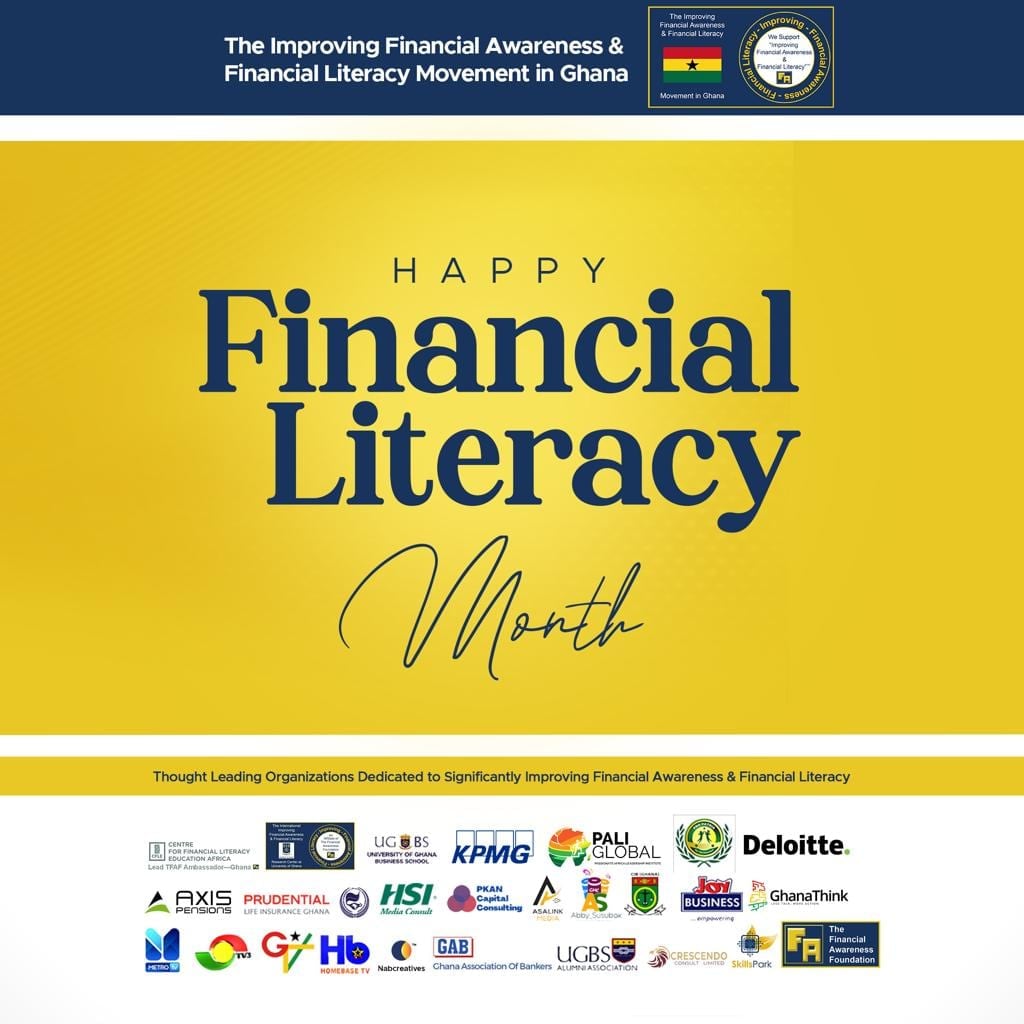Financial Planning: Before The Vows – Peter Kwadwo Asare Nyarko
So, things are going great in your romantic life. Your partner is awesome. Sunshine and rainbows are everywhere. Here, finally, is the one you cannot live without, who also cannot live without you.
Who wants to talk about finances, at a time like this?


Love conquers all, right? All you need is love. The Beatles sang it. You believe it. That settles it.
Well. Well. Stop. Right. There.

Romance is wonderful. It’s the best. But romance alone can’t keep the lights on, or the landlord happy, or put groceries on the table, let alone foot the bill for the sorts of exotic getaways a romance like yours deserves.
And so, committed lovers, before you take those marriage vows, you must have… THE MONEY TALK! Yes!!! You heard me right, THE MONEY TALK!
Getting married? Try this financial agenda for starters.
THOUGHT TO PONDER:
“Success is not the key to happiness. Happiness is the key to success. If you love what you are doing, you will be successful.” –Albert Schweitzer
For starters you should have a very important talk with your partner that involves life goals, personal values and interests, lifestyles and finances.
Open communication about these issues
makes for a better marriage and lifelong
relationship.
Look upon this process as an opportunity to improve your relationship and strengthen your trust in each other.
Here’s an agenda of questions that will make the process interesting and meaningful. We suggest that you discuss these topics in the sequence shown. Find a comfortable setting – maybe outdoors in a quiet park, or a hilltop with a nice view – and bring a picnic lunch along with your high-level financial information, such as a list of assets and liabilities, a proposed cash-flow plan, some paper, pencils, a laptop, an open mind and a loving heart.
You may not complete this discussion in one sitting, but it’s important to get started.
1. YOUR FINANCIAL GOALS IN LIFE
What are your big financial goals? Do you wish to be enormously wealthy, do you want to change the world, or do you prefer being comfortable without financial stress? What are your current plans to accomplish these goals?
2. CHILDREN
Do you want to have children and, if so, how many and when? Will your financial goal be to make life better for your children than it was for you? Do you want your children to go to private schools and at what age? Will they go to college? Public university or private university? How will this be paid for?
3. WORK/YOUR CAREER
What is most important about your work: job satisfaction or money? Do you want to advance in your career to an executive position? Are you willing to make the family sacrifice to accomplish your goals?
Be open to talking about your expectations of each other in balancing work and family. If you have children, will both of you continue working, or is it expected that one of you will stay home to do child care?
What about continuing education: Do one or both of you want to go back to school to get an advanced degree or to learn new skills so you can change jobs? Is that OK with the other, and how will the education costs be paid — by one of you or both of you?
Would one of you ever want to start your own business? If so, how might this affect your financial situation? Is the other spouse willing to make the time, family and financial sacrifices often needed when starting and running a new business?
4. HEALTH
Health issues can have a tremendous impact on your financial well-being. Be frank in discussing your individual health situation and concerns. Do you have a family history of heart disease or cancer?
What are your attitudes toward aging? Are you willing to take care of each other “in sickness and in health until death do you part”?
If there’s a big age gap between you, can you deal with the possibility that the younger spouse may need to care for the elder for many years?
Do you have aging parents in poor health? Are you able and willing to help them? What financial repercussions might this entail if the two of you each need to support aging parents?
5. PRIOR COMMITMENTS
Do either of you have any prior financial
obligations? Do you have any loans due? Are you a co-signer on a loan? Does anyone owe you money? Does either person have a financial obligation for alimony and/or child support?
6. HOUSING
Are you planning to move to a new location after the wedding, or will you consolidate your belongings into an apartment, house or condo that one of you already occupies? If you move, what type of neighborhood do you want to live in? Do you want to live close to your parents to be available for them? Do you need to live close to children from a prior marriage?
How much do you want to spend on rent or a mortgage? If you want to buy a home, or start building one, do you have the resources to do it? If not, what’s your plan for saving the necessary funds? Are you willing to live frugally now while saving for a home?
7. ASSETS, DEBTS AND INCOME
Give each other a list of your assets and debts, and include everything. Talk about how much you earn and your other sources of income (e.g., rental from a property or income from a trust fund).
What is your credit rating? Does one of you have any credit problems that might make it difficult to get a loan or take out a mortgage? Each of you should agree to run current personal credit reports and exchange them with each other.
Has either of you ever declared bankruptcy? If so, explain the circumstances to the other.
8. MANAGING FINANCES
Will you keep separate bank and investment accounts, have joint accounts, or try to do something in between?
Who will pay the bills? How will you divide up expenses:
a) equally,
b) based on income earned, or
c) all paid by one of you?
How will you make major expenditure decisions, i.e., what car to buy? For whom, when? What does each of you know about investing? Do either of you have financial advisers? Which will you keep? Will you invest together or separately? Is one of you a risk-taker and the other risk-adverse?
Are you willing/able to compromise here?
What are your feelings toward debt? Are you opposed to living with a lot of credit card or home-equity debt, or do you believe it’s OK to borrow as much money as you can? If there are differences of opinion, how will you handle it?
9. PREMARITAL AGREEMENTS
Are you planning to ask your future spouse for a prenuptial agreement? If you or your partner have significant assets or might inherit wealth, a prenuptial agreement can add a layer of protection to the separate property you bring into the relationship.
10. WILLS AND TRUSTS
Do you each have a will and/or a trust? If so, how will they be updated once married? If not, how will you get your estate plans created?
Will you name each other as primary beneficiary for retirement plans and insurance?
How will you handle children from a prior
marriage in your wills? Can you be fair to your children and to your new spouse at the same time?
11. SAVINGS AND RETIREMENT
Do you believe in saving for the long term? Or do you live for today? Are you willing to put money aside each month for long-term goals, like financial independence/retirement?
When do you each want to retire? What lifestyle do you see for yourself in retirement? Where might you like to live in retirement?
12. RISK MANAGEMENT
How do you feel about self-insuring versus
buying insurance? How much and what kinds of insurance do you each already have? Should either of you acquire more insurance — life, health, disability, dental, long-term care, property, vehicle, liability? Whose agent shall you use?
13. NAMES
Will the woman take the man’s last name, or will you do something different, such as exchange last names or hyphenate both your last names?
Getting through this agenda is a very important beginning of a lifelong relationship, and even makes a useful refresher course for married couples.

These materials are provided as a public service by Center for Financial Literacy Education Africa and The Financial Awareness Foundation for “free-use” on websites, newspapers, newsletters, magazines, and other news media broadcasts in support of The Improving Financial Awareness & Financial Literacy Movement & Campaigns.
For additional information or materials contact us at;
Center for Financial Literacy Education Africa; A Ghanaian non-profit that is significantly improving financial awareness and financial literacy education.
Tel: +233 278 553 887
Email: info@cfleafrica.org
Peter Kwadwo Asare Nyarko, Executive Director
Happy Financial Literacy Month!


Thanks for reading.

